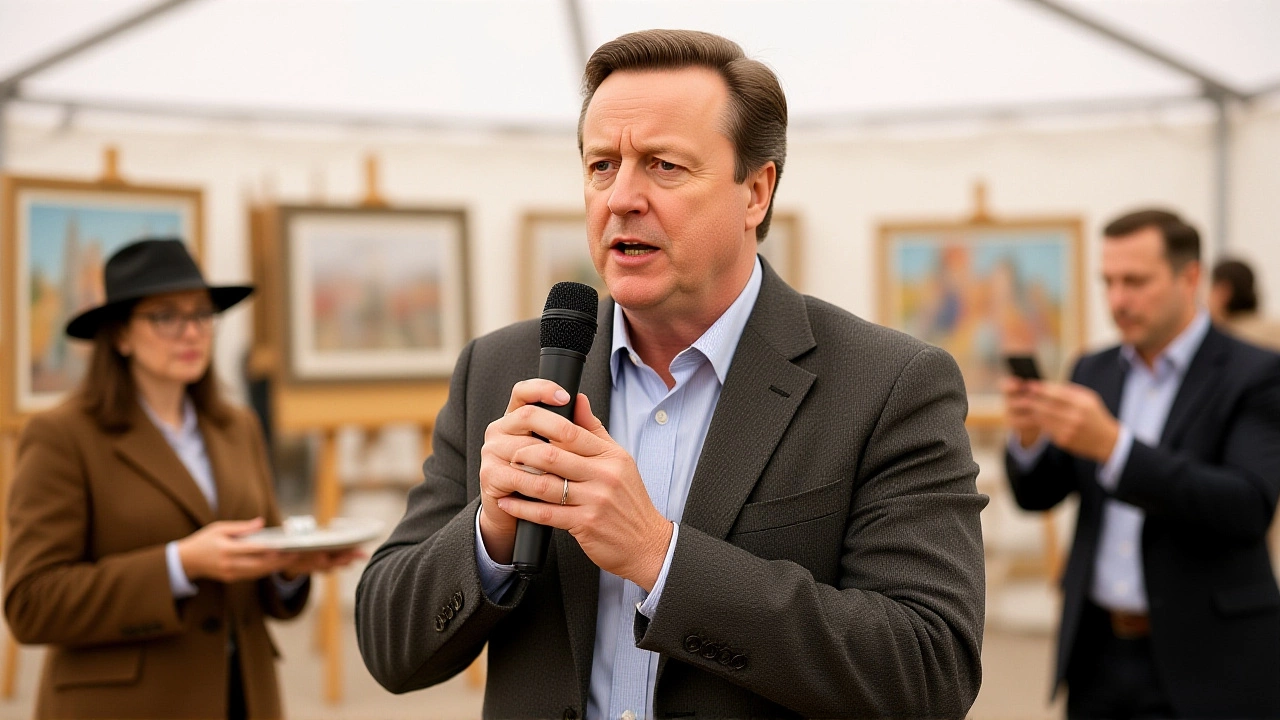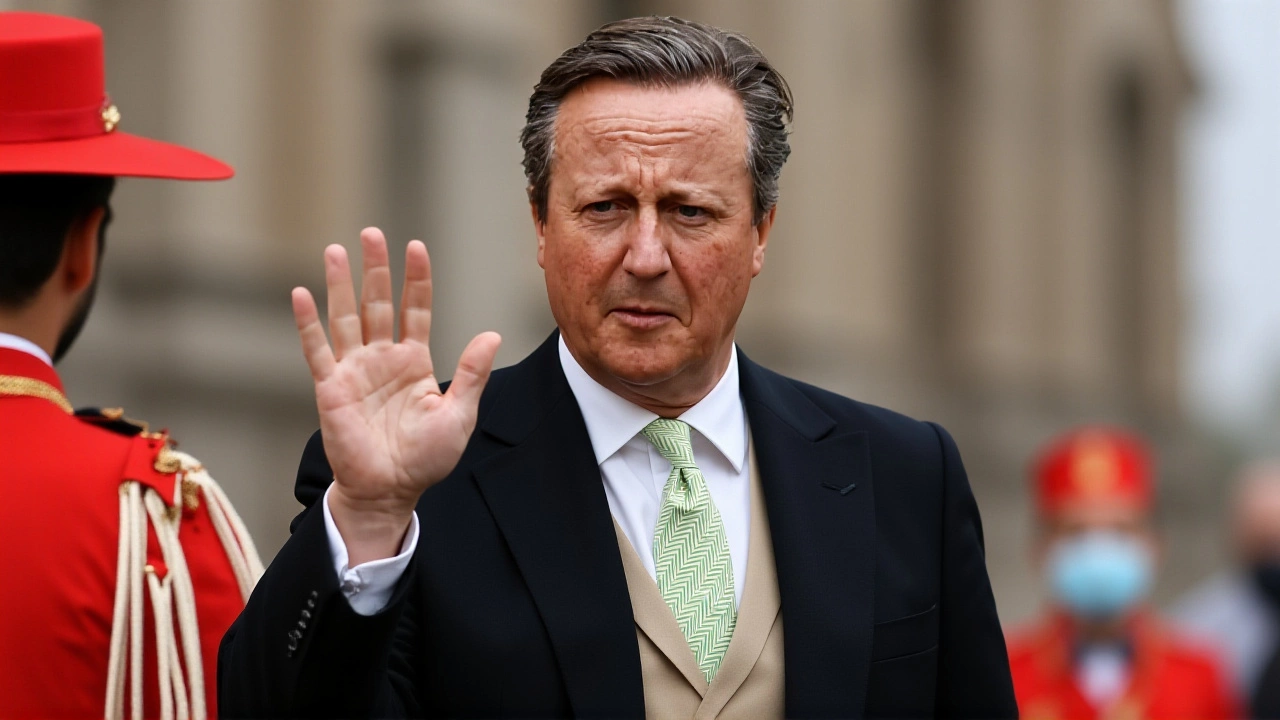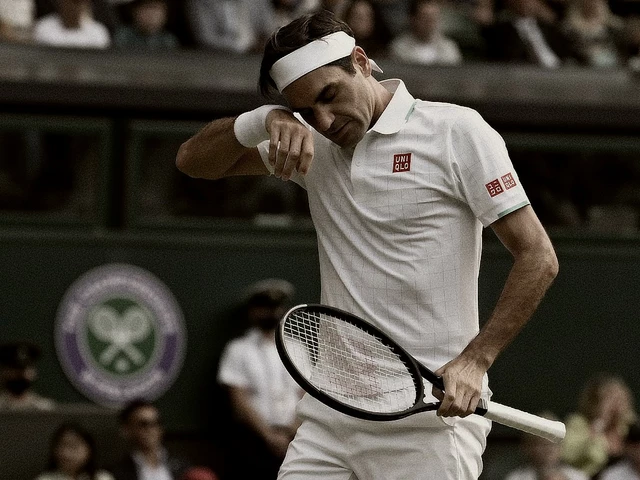When Sir Iain Duncan Smith stood in the House of Commons in December 2024 and demanded China be officially labeled a security threat, he wasn’t just making a political statement—he was burying the legacy of a decade-long British policy that once celebrated Beijing as a partner. The former Conservative Cabinet minister, who was sanctioned by China in 2021 for his outspoken criticism of human rights abuses in Xinjiang, called the David Cameron and George Osborne era of UK-China engagement a "massive mistake." And he’s not alone. Across Westminster, the once-celebrated "Golden Era" is now seen by many as a costly blind spot.
The Golden Era That Wasn’t
Between 2010 and 2016, Cameron and Osborne didn’t just welcome China—they courted it. In 2012, Cameron proudly announced Huawei’s £1.5 billion investment in the UK, promising 700 jobs and even hinting at opportunities near his own constituency in Banbury. The following year, the chancellor, George Osborne, led a trade delegation to Beijing that included 120 British CEOs. Then, in October 2015, Xi Jinping made his historic state visit to London, where Cameron declared a "golden era" of cooperation. It was a moment of triumph for British diplomacy—or so it seemed.But beneath the handshakes and photo ops, cracks were forming. Duncan Smith, who resigned from Cameron’s cabinet in March 2016 over welfare cuts, had long been an outlier. A staunch Brexiteer and China skeptic, he saw the "Golden Era" not as opportunity, but as naivety. "We were trading access for applause," he told the New Statesman in 2024. "We didn’t ask what they were building—or who they were building it for."
A Shift in Westminster
The turning point came in 2020, when Duncan Smith helped found the Inter-Parliamentary Alliance on China (IPAC). Alongside MPs like Bob Seely, Liam Fox, and Tim Loughton, he pushed for a radical rethinking of Britain’s China policy. Their goal? To counter what they saw as Beijing’s economic coercion, espionage, and influence operations.By 2023, the tone had hardened. A Conservative parliamentary researcher was arrested on suspicion of spying for China—a case linked to Tom Tugendhat and Alicia Kearns, both IPAC members. Then came the ban on a Chinese businessman tied to Prince Andrew’s Pitch@Palace initiative, who had met both Cameron and May before being barred on national security grounds.
The diplomatic chill spread. In April 2023, Duncan Smith helped orchestrate a move to bar the Chinese ambassador from entering the Palace of Westminster—a symbolic but powerful rebuke. "We’re not shutting the door," he said. "We’re installing a lock."

What Changed? The Tech War Comes Home
The real shift wasn’t just political—it was technological. China’s "Made in China 2025" plan, unveiled in 2015, aimed to dominate critical industries like semiconductors, AI, and 5G. Huawei, once a symbol of British openness, became a red flag. Security agencies began warning that Chinese tech firms could be used for surveillance or sabotage. The UK’s decision to remove Huawei from its 5G network in 2020—after years of hesitation—was the first major policy reversal.By 2024, even Labour’s David Lammy, the new Foreign Secretary, admitted the Conservatives had no coherent strategy. "The problem with our position on China was that we didn’t have a position," he said. It was a damning indictment of the Cameron-Osborne legacy.
The New Rules: Registration and Red Lines
The government’s response? A foreign influence registration scheme, set to launch by summer 2025. Dan Jarvis, the Security Minister, confirmed the plan but refused to name China explicitly—likely to avoid diplomatic escalation. Still, the intent is clear: transparency over opacity, scrutiny over silence.The irony? The very companies that were once heralded as job creators—like Huawei—are now under investigation for potential ties to the Chinese military-industrial complex. The £1.5 billion investment? A fraction of the cost of national security overhauls now underway. And those 700 jobs? Many have already moved or been restructured under pressure from U.S. sanctions.

Why This Matters
This isn’t just about China. It’s about how democracies balance economic opportunity with strategic risk. The UK’s pivot mirrors the U.S., Australia, and Canada—countries that once welcomed Chinese capital but now demand accountability. Duncan Smith didn’t create this shift. But he was one of the first to scream into the void when no one else would listen.What’s next? More parliamentary inquiries. More sanctions. Possibly, a new review of all Chinese investments since 2010. And perhaps, finally, a foreign policy that doesn’t confuse friendship with vulnerability.
Frequently Asked Questions
Why did Duncan Smith oppose the "Golden Era" with China?
Sir Iain Duncan Smith viewed the UK’s close ties with China under Cameron and Osborne as dangerously naive. He believed the government ignored human rights abuses, unchecked tech influence, and potential espionage risks—all in pursuit of short-term economic gains. His 2021 sanctions by Beijing validated his stance in his eyes, and he later helped found IPAC to push for a hardline approach.
How did Huawei’s investment impact the UK’s security posture?
Huawei’s £1.5 billion investment created jobs and boosted UK telecom infrastructure, but it also embedded Chinese technology into critical national systems. By 2020, intelligence agencies warned of potential backdoors for surveillance. The UK’s eventual ban on Huawei’s 5G equipment in 2020 marked a major policy reversal, signaling that economic benefits no longer outweighed security risks.
What’s the foreign influence registration scheme, and why is it significant?
Announced by Security Minister Dan Jarvis in late 2024, the scheme will require foreign entities engaged in political or media influence in the UK to register and disclose their funding and activities. While China isn’t named, the timing and context make it clear the policy targets Beijing’s opaque lobbying. It’s the UK’s first major structural defense against foreign interference since the Cold War.
How does this compare to U.S. policy on China?
The UK’s shift mirrors Washington’s "decoupling" strategy since 2018, particularly around tech and infrastructure. The U.S. banned Huawei, restricted semiconductor exports, and pressured allies to follow suit. The UK’s new registration scheme and IPAC’s influence show a similar alignment—though slower and less aggressive. Both now treat China as a systemic rival, not just a trading partner.
What role did Brexit play in the UK’s China policy shift?
Brexit forced the UK to rethink its global alliances. With the EU no longer a primary trade partner, London looked to Asia—but not blindly. Duncan Smith and other Brexiteers argued that without EU protections, the UK needed stronger sovereignty safeguards—especially against foreign state influence. China policy became part of a broader nationalist reorientation, not just an economic decision.
Are other former Conservative leaders being criticized for their China policy?
Yes. While Cameron and Osborne are the main targets, Theresa May’s administration also faced backlash for continuing the "Golden Era" approach after 2016. The 2023 ban on a Chinese businessman tied to her government, and the lack of action on Huawei’s 5G rollout, are now seen as missed opportunities to reset policy earlier. The criticism isn’t just about individuals—it’s about a systemic failure to adapt.





